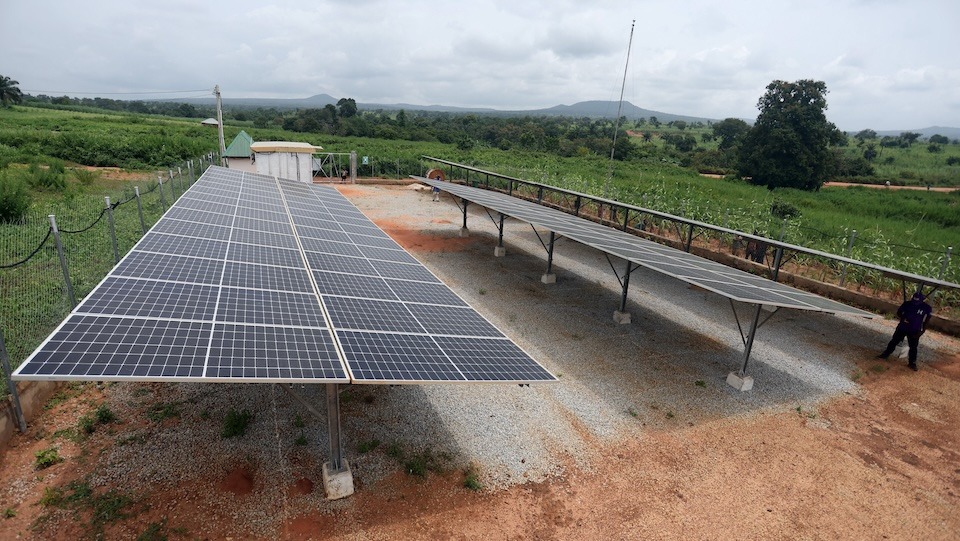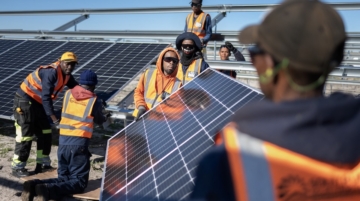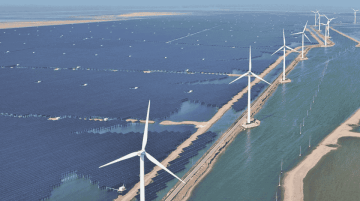
Wealthy Nigerians are fueling a surge in Chinese solar panel imports, underscoring the country’s deep energy crisis, where more than one-third of the population continues to live without access to electricity.
While acknowledging the electricity access problem, Ebipere K. Clark, a consultant specializing in energy, infrastructure, finance, and climate action, notes, “…but this is not driving solar panel purchases. The more wealthy are buying panels for their rooftops. This is commercial and industrial as well as residential customers.”
He adds that the main reason Nigerians are turning to solar energy is for energy security and predictability, “against an epileptic grid.”
These frequent grid failures have made electricity supply unreliable, prompting the emergence of solar panels as more dependable alternatives. And now, some Nigerian and Chinese companies are working on establishing local solar panel manufacturing to expand energy access and create employment opportunities.
Nigeria Largest Market in Africa For Generator Set Replacement
However, even as solar manufacturing appears to be a better alternative for Nigeria, Ebipere, who is also a managing partner at the sustainability policy, projects and finance specialist advisory firm, Frontier-Alpha LLP, notes that the country, through its large self-generation capacity, offers the largest market in Africa for generator set replacement. Nigeria has approximately 3 million generators, which is nearly half the number in use across Africa.
He notes that due to this factor, manufacturers should view Nigeria not only as a consumer market but also as a production destination.
Solar manufacturing is a complex and heavily dependent process, heavily reliant on abundant supplies of both water and energy — two factors that pose significant challenges for Nigeria and other African countries in competing with Chinese producers.
Nicola Licata, a Shanghai-based environmental, social, and governance project manager, observes, “Imports from China will persist because of supply chain realities. Even if African producers can assemble modules or cells, the machinery and most upstream materials — including silica wafers — still come from China.”
African Nations Likely to Keep Relying on Chinese Imports
Wafers are thin, flat slices of silicon, which is made from sand, that serve as the base material for making electronic chips. They act like the foundation where tiny circuits are built, powering solar panels. Chinese manufacturers have perfected their solar manufacturing processes, giving them an edge over those who are just starting to develop their systems.
Given these constraints, Nigeria and other African nations are likely to keep relying on Chinese imports in the near term. High tariffs and taxes on equipment and components make domestic production less competitive. Just as important, many countries lack supporting industries like glass, aluminum, and sulfuric acid production, which are critical to solar manufacturing.
The supply chain is limited not only for essential materials like cells but also for auxiliary inputs, including glass, back sheets, and EVA, a type of durable plastic that works like glue, holding the solar cells in place, protecting them from vibrations or shocks, and sealing them from moisture, dirt, and air.
Opportunities For Technical Training, Operations And Maintenance
Even as the solar panel manufacturing debate rages, Ebipere says that in the meantime, solar energy will be implemented in two modes: on-grid or off-grid. “The off-grid market will be the most attractive at the moment, as the on-grid has debt issues and off-grid will focus on minigrids and rooftop solar.”
He adds that Nigeria will follow the Pakistan/ South Africa model, where individual consumers will buy solar for energy security. “This is a massive market currently held by fuel generator sets that has been made less attractive due to the fuel subsidy removal.”
Despite only a handful of African governments being capable of making a credible long-term green industrial strategy to convince Chinese companies to invest, Wei Shen, a political economist and development finance expert on China, notes that given the soaring trade of solar panels, there can be tremendous opportunities for technical training and operations and maintenance (O&M).
“That should spur domestic entrepreneurs to learn how to integrate into the value chain. Some leading Chinese renewable energy companies today, such as Goldwind, were once O&M, and I hope this solar boom can be the start of a long journey for the African countries to nurture their own industrialists despite all the challenges and uncertainties.”










